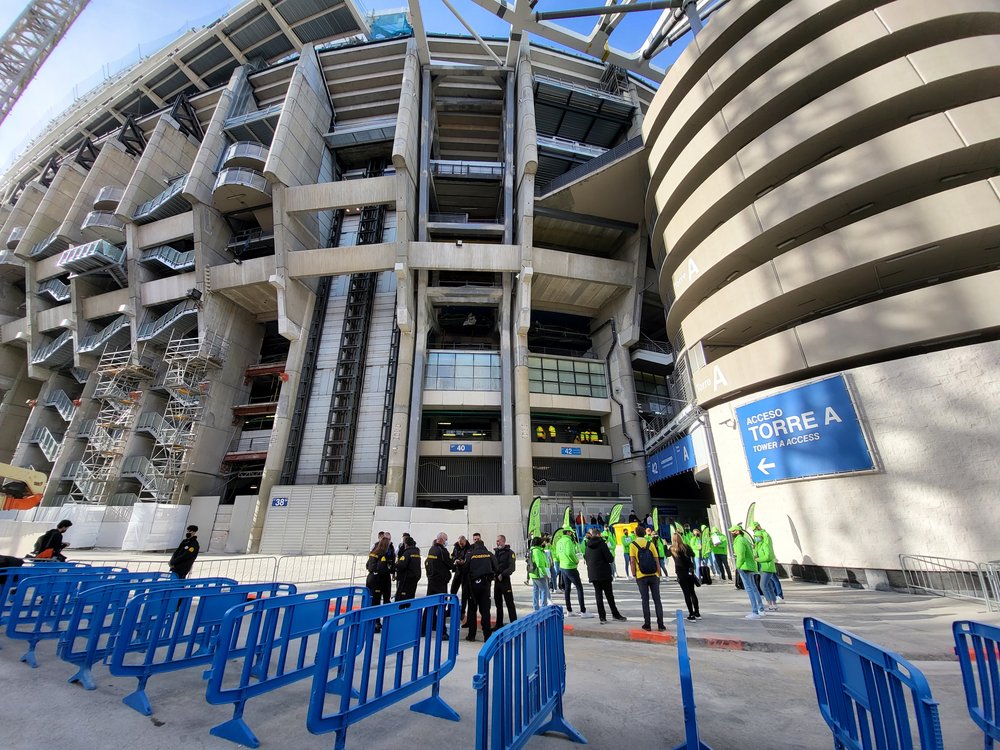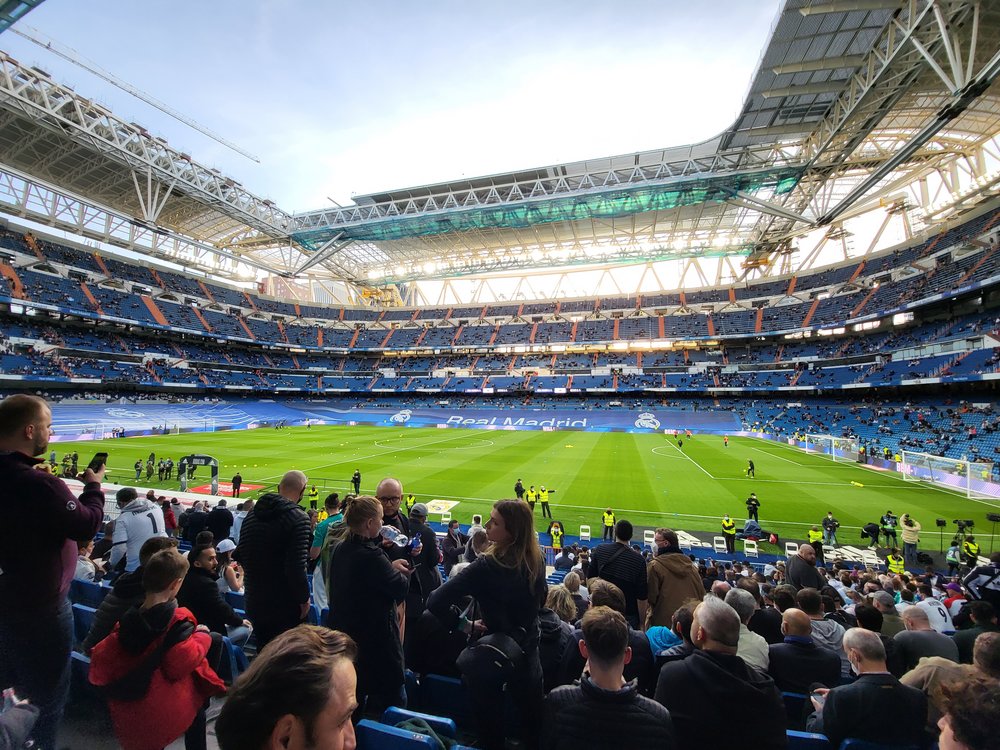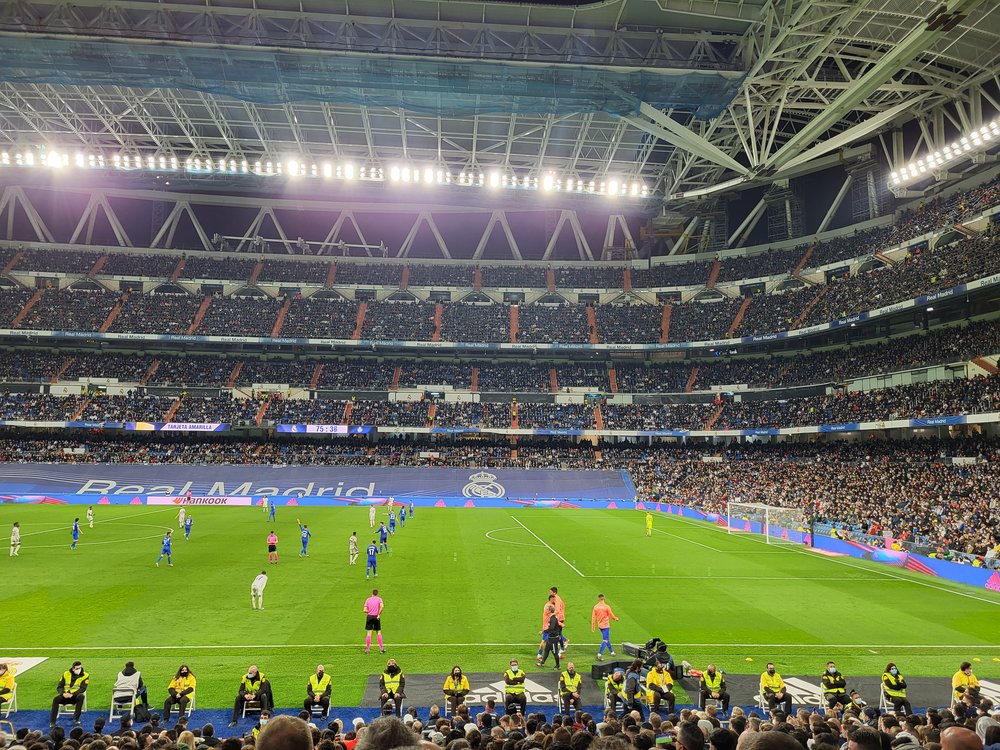The three-day visit began with a meeting at INTA – National Institute of Aerospace Technology a Spanish Public Research Organisation. The project partners discussed results of research and analyses that focused on the needs of sport facilities in the area of CBRN safety (chemical, biological, radiological and nuclear threats). Understanding the needs of stadium managers made it possible for the partners of the Safe Stadium consortium to plan further activities as part of the project.
The team will prepare, among others:
- CBRN security procedures, tools, plans and guidelines,
- training materials and an e-learning platform addressed to security personnel,
- a set of recommendations aiming at increasing security in the area of infrastructure, ICT/technological solutions,
- tools and solutions in the field of epidemiological safety.
The Safe Stadium experts were also hosted by the Head of Security of Real Madrid CF and the Head of Security of Estadio Santiago Bernabeu (Real Madrid CF stadium). The talks concerned reconstruction and renovation of the stadium as well as safety and security procedures on the premises of this facility.
The next day, study visits to the Real Stadium continued. The experts had an opportunity to speak with Heads of Security, observe the safety and security procedures put in place before, during and after the match. Of course, the participants had also a pleasure to observe the game itself.
Real Madrid's stadium has a capacity of over 80,000 spectators. In addition, renovation works worth over EUR 500 million are currently underway at the facility. The works are very extensive and include, among others, creating a new facade, retractable roof and building a system of retractable turf. As a coordinator of the SAFE STADIUM project, I was most interested in the safety procedures implemented when extensive renovation works are carried out at the stadium and at the same time matches with full audience are organised. As befits a contender for a La Liga winner, everything was organised perfectly.
dr hab. Michał Bijak, prof. UL.
The last day of the Madrid visit was devoted to workshops which were organised at the Real Madrid Training Centre. The workshops focused on the following areas of stadiums CBRN safety:
- vulnerability assessment,
- risk assessment,
- CBRN security plan.
News about the visit can be also found on the website of Real Madrid.
"Safe Stadium" Consortium
An international consortium of 14 institutions, financed by the European Commission, is managed by prof. Michał Bijak, a biologist from the University of Lodz. The team's activities include conducting a security audit of selected sports facilities and developing a system including procedures, equipment, infrastructure and a training programme with AI elements, as well as joint exercises in the field of responding to terrorist events.
During visits to the stadiums in Poland, Slovakia and Spain, the experts carry out a multi-faceted analysis of the current practices and the needs of sports clubs. On this basis, procedures and systems for responding to CBRN threats on the premises of these facilities will be developed. The project also includes preparation of special e-learning courses based on Virtual Reality (VR) technology. They are to teach appropriate behaviour in the event of a threat, e.g., a biological one.
International consortium for safe sport
Polish and foreign expert institutions, both private and public ones, participate in the project implemented as part of the European Union ISF Police programme. In addition to scientists from the University of Lodz Biohazard Prevention Centre, which is the project leader, they include the following football clubs: Real Madrid, Lech Poznań or MSK Żilina, as well as MAKiS – operator of the sports facilities in Lodz, Polish and Spanish police, Italian Agostino Gemelli University Polyclinic, Slovak International Security and Emergency Management Institute (ISEMI), Spanish National Institute for Aerospace Technology (INTA).
The CBRN security system developed by them is to serve organisations such as the Union of European Football Associations (UEFA) and the International Basketball Federation (FIBA), as well as clubs, operators of sports facilities and organisers of mass events, including concerts or fairs.
Source: University of Lodz Biohazard Prevention Centre;
Edit: Promotion Centre of the Universoty pof Lodz





